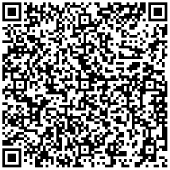10/11/2022–|Last updated: 10/11/202215:02 (Mecca)
Today, Thursday, the Lebanese parliament failed for the fifth consecutive time to elect a new president, in light of deep divisions, 10 days after the country entered the presidential vacuum following the expiry of the term of president Michel Aoun.
Parliament’s failure to elect a candidate so far suggests that the electoral process could take a long time, further complicating the situation in a country mired in a severe economic crisis and where constitutional deadlines are rarely met.
47 deputies voted with a blank sheet, while Representative Michel Moawad, supported by Lebanese forces led by Samir Geagea and other blocs, including the bloc of Druze leader Walid Jumblatt, got 34 votes. Six deputies voted for historian and university professor Issam Khalifa.
Thursday’s session failed despite a two-thirds majority in the first session, before MEPs withdrew to overthrow the quorum in the second session.
Parliament Speaker Nabih Berri has set a date for the sixth session next Thursday, according to the National News Agency.
In the first round of voting, a candidate needs a two-thirds majority, ie 86 votes, to win, and in the case of a second round, the required majority is 65 votes.
Challenge filter
Major blocs, including Hezbollah, which is currently the most important political and military force in Lebanon, oppose Moawad and describe him as a “challenge” candidate, and ask for consensus on a candidate, and their circles view Moawad as close to the states. United States.
Representatives of Hezbollah and its ally, the Amal Movement, led by Parliament Speaker Nabih Berri, adopt the voting strategy with a white paper, then withdraw from the session to overturn the quorum for the second session.
Former minister and parliamentarian Suleiman Franjieh is widely regarded as the perfect candidate for Hezbollah, even though he hasn’t publicly declared his support. However, the head of the Free Patriotic Movement, MP Gebran Bassil, Aoun’s son-in-law and aspiring president and ally of Hezbollah, has declared his opposition to Franjieh.
In Lebanon, the existing system of compromise and quotas between political and sectarian forces usually delays important decisions, including the formation of a government or the election of a president.
In 2016, after more than two years of vacancy for the presidency, Aoun was elected president after 46 sessions, following an agreement between the political parties.


